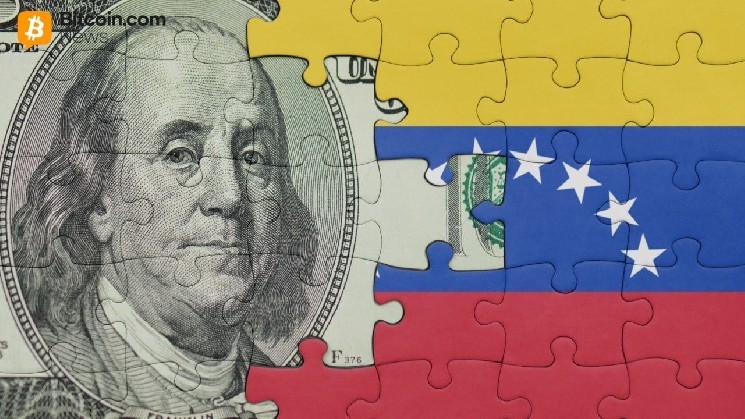Richard Ujueta, president of Cavecom‑e (Venezuelan Chamber of Electronic Commerce), said most payment operations are moving to USDT due to the scarcity of dollar cash. He added that banks must implement USDT payments on POS devices by December.
Venezuelan banks should adopt USDT by December, analyst says
fact:
According to Richard Ujueta, president of the Venezuelan e-commerce chamber Cavecom-e, Venezuela is moving toward full-scale integration of stablecoins like USDT into its banking and financial system.
Ujueta explains that both cryptocurrencies and stablecoins, which are pegged to the value of the US dollar, are now part of the country's economic fabric. The scarcity of foreign currency cash and the difficulties associated with trading these dollars are the main drivers of this change.
As quoted by local media, he said:
The payment system is largely moving to USDT. Binance currently manages over 5.5 million Venezuelans with open accounts.
Ujueta emphasized that this change will lead to private banks directly accepting stablecoins, especially USDT. “By the end of the year, the national banking network will accept USDT through their payment devices,” he declared.
He judged the upcoming evolution to be disruptive but necessary given the changes Venezuela's economy is undergoing.
As an example, Ujueta revealed that some lease contracts are already considering stablecoin payments. “Due to the scarcity of cash, even lease contracts now include clauses for payment in this stable cryptocurrency,” he concluded.
Why it's relevant:
Venezuela is reportedly adopting stablecoins as a means of payment for both international and domestic payments related to oil sales, but banking channels are not being used.
While some companies offer stablecoin on/off ramp services, banks introducing these services would be a step up for Venezuela and facilitate the growth of several use cases related to USDT.
Remittances will be an important use case, and removing intermediaries can make them simpler and cheaper at the same time.
Looking forward to:
USDT’s banking integration in Venezuela is a related experiment that, if successful, could encourage more countries to jump on board the stablecoin train.
Nevertheless, adopting USDT, a token issued by a private company, may also create additional risks for holders and banks that are not contemplated by current banking regulations.
FAQ
What are Venezuela's recent developments regarding stablecoins?
Venezuela is working to integrate stablecoins, particularly USDT, into its banking and financial system to address foreign exchange shortages.What are the factors driving the shift to stablecoins?
The lack of US dollar cash and the challenges in trading these dollars are the main reasons for adopting stablecoins as part of the country's economic framework.How are private banks expected to participate in this transition?
Cavecom-e's Richard Ujueta suggests that by the end of the year, private banks in Venezuela will begin accepting USDT through their payment devices.What impact will this integration have on the Venezuelan economy?
If successful, this initiative has the potential to streamline remittances and internal payments, but also poses potential risks associated with the use of privately issued tokens like USDT.


